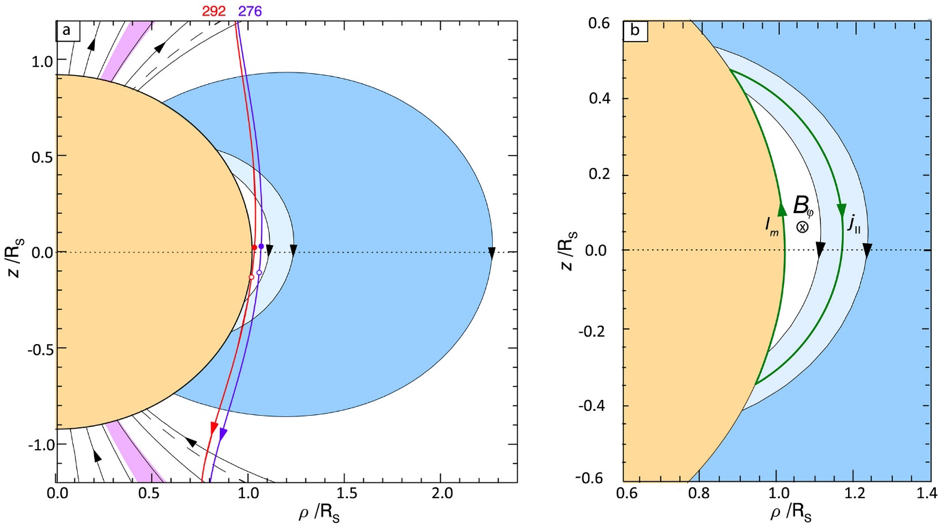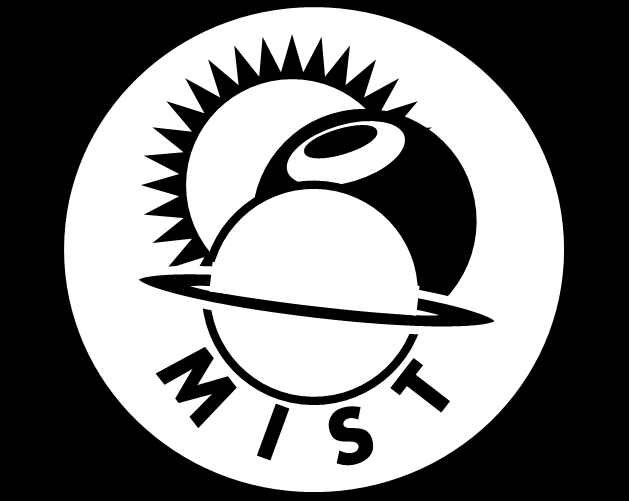MIST
Magnetosphere, Ionosphere and Solar-Terrestrial
The surprisingly variable current system inside Saturn’s D ring
by Gabby Provan & Stan Cowley (University of Leicester)
During Cassini’s Grand Finale, the spacecraft made 22 daring “proximal” periapsis passes between the denser layers of Saturn’s upper atmosphere and the inner edge of the planet’s innermost D ring (Figure 1a). This region had never previously been explored. On every pass Cassini’s magnetometer observed unanticipated perturbations in the azimuthal magnetic field component, confined to field lines that pass through and inside of the D ring in the equatorial plane, peaking typically at a few tens of nano-Tesla. Since the fields are near-symmetric about the magnetic equator, they are consistent with interhemispheric currents flowing along the near-equatorial magnetic field lines, as illustrated in Figure 1b.
Here we examine the azimuthal field perturbations on all the proximal passes, and show that they are surprisingly variable in form and magnitude. While a third of the passes indicate a unidirectional current flow, and a further third shows multiple sheets of oppositely-directed currents. The remaining passes present diverse signatures, including two passes showing reverse currents, and two with only small and fluctuating perturbations. This variability is not related to the spacecraft trajectory or organized by any known rotational period of the Saturnian system (i.e. the phase of the Saturn’s planetary period oscillations or the rotational phase of the D68 ringlet).
Khurana et al. (2018) suggested that these currents are generated by differential zonal thermospheric wind drag acting in the ionosphere at the two ends of these inner field lines. If so, these results show that either Saturn’s ionospheric zonal winds or ionospheric conductivity, or both, are very variable over the ~6.5 day orbital period of these periapsis passes. Our results add to the body of evidence showing that there is a significant and variable dynamical interaction between the material in Saturn’s D ring and the planet’s equatorial atmosphere.
For more information, please see the paper below:
Provan, G., Cowley, S. W. H., Bunce, E. J., Bradley, T. J., Hunt, G. J., Cao, H., & Dougherty, M. K. (2019). Variability of intra–D ring azimuthal magnetic field profiles observed on Cassini's proximal periapsis passes. Journal of Geophysical Research: Space Physics, 124. https://doi.org/10.1029/2018JA026121

Figure 1: (a) The spacecraft trajectory of two example proximal passes. The planet is shown in orange, and the arrowed black lines show model magnetic field lines. The A to C rings are shown in dark blue, and the D ring in lighter blue. The suggested intra-D ring current system is shown in green in panel (b).
